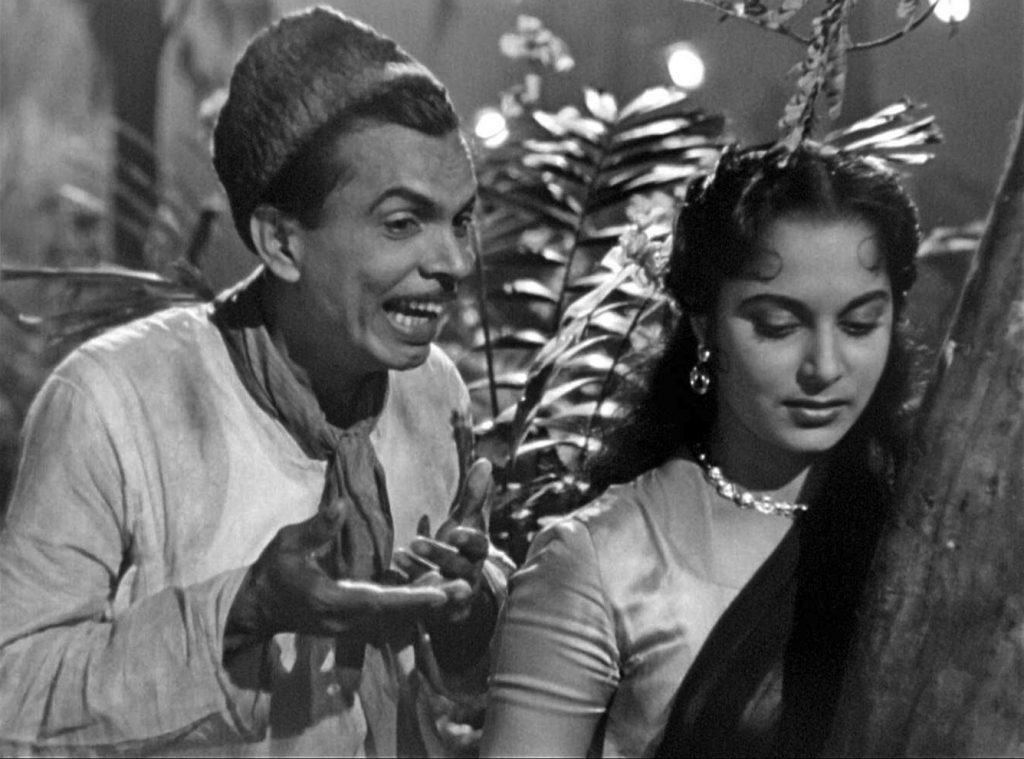It was a key moment in Pyaasa (1957). The struggling poet, Vijay (Guru Dutt), gives his coat to a beggar, who is then run over by a train. In a case of mistaken identity due to the coat being Vijay’s and the corpse being badly mutilated, it is taken for granted that the dead person is Vijay. Vijay’s death is announced in the papers. His friend, Abdul Sattar (Johnny Walker), who earlier was elated when he found out that the kindhearted prostitute, Gulabo (Waheeda Rehman), loved his friend (see header picture), now has to break the news of Vijay’s ‘death’ to her. Originally in the film, Gulabo, shattered by Vijay’s death, leaves the city and goes back to her village.
At this point, there was a sad song filmed on Waheeda Rehman sitting in a boat, Rut Phire Par Din Humare Phire Na Phire Na Phire Na. The song is beautifully written by Sahir Ludhianvi, composed perfectly by SD Burman and rendered impeccably by Geeta Dutt. Though the song was filmed on her, Rehman, then a relative newcomer to films, felt the song broke the narrative flow and the logic of Pyaasa’s story. After watching Pyaasa at a trial show, she felt it needed to be deleted from the film and said so. Quoting her in Nasreen Munni Kabir’s book, Conversations With Waheeda Rehman, she says, “The hero, Vijay, is assumed dead. Why is Gulabo singing? The audience would want to know what happens next rather than hear her song.” According to Rehman, there was pin-drop silence after her comment. The film’s other heroine, Mala Sinha, even whispered to her that she was mad getting her role cut. Raj Khosla, Guru Dutt’s ex-assistant, told Dutt that Rehman knew nothing about films so why listen to her. In an interview given to me around 2008, Rehman also recalled how angry composer SD Burman was at her suggestion to remove the song. Anyway, things settled down when Dutt declared they would not remove the song from the film.
However, once the film released, Dutt realized audiences were using the song for a cigarette break, leaving the theater once the song came on. He therefore removed the song from the film. Rehman recalled it was easier to do so those days as not many prints of the film were made for its release at the time.
Thankfully, when the CDs of Pyaasa’s soundtrack came out, HMV included the song in the song list. Hearing it today, no doubt it is a fantastic song but one does feel that Waheeda Rehman was probably right when she said that the song had no place in the film. For Pyaasa appears as perfect a film as can be in its present state. Still, here’s the song to hear, enjoy and savor even if one cannot ‘see’ it.


